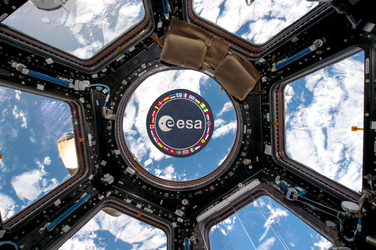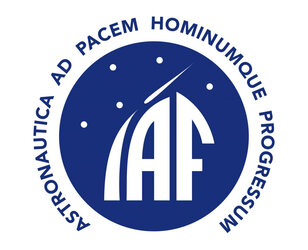ESA headquarters
ESA has its headquarters in Paris. Here the Director General and the majority of the Programme Directors have their offices, and the decisions that shape ESA’s present and future activities are made.
ESA Paris is also the administrative centre and contains the main offices for staffing, legal affairs, finance, budget, internal audit, strategy, international relations and communications. Each ESA Centre also has offices for personnel, finance and communications that report to ESA headquarters in Paris.
To facilitate its international relations, ESA has liaison offices in Brussels, Moscow and Washington together with an office in Houston, USA to support International Space Station activities and one in Kourou, French Guiana, for Europe’s Spaceport.
The ESA Council

ESA’s governing body is the Council. This is composed of high-level representatives of ESA Member States and is responsible for drawing up the European Space Plan and ensuring the long-term funding of the Agency’s activities. Each ESA Member State has one vote and is represented by a Council delegate from the ministry responsible for space activities in each Member State.
In general, Council meetings are held every three months at delegate level and every two to three years at ministerial level. Meetings at delegate level usually take place at ESA’s headquarters.
Council is responsible for:
- drawing up the European Space Plan
- ensuring that it is being followed
- approving both ongoing and future Programmes
- deciding on the level of resources to be made available to ESA
ESA’s activities are divided into nine Directorates, each headed by a Director who reports directly to the Director General. These are:
- Earth Observation Programmes
- Technical and Quality Management
- Launcher Programmes
- Human Spaceflight, Microgravity and Exploration Programmes
- Resources Management
- External Relations
- Science Programmes
- EU and Industrial Programmes
- Operations and Infrastructure
International cooperation

To ensure that ESA remains at the forefront of space research and exploration, ESA frequently joins in cooperative ventures with other spacefaring nations such as the United States, Russia, Canada and Japan. Negotiations with countries wishing to join ESA also take place in Paris.
International collaboration also includes assisting developing countries. ESA manages a worldwide network of ground-receiving stations to collect remote sensing data and has set up a network to transmit weather and environmental data to African countries.
ESA's Office for International Relations interacts with international organisations such as the United Nations World Meteorological Office, the United Nations Environment Programme and the United Nations Food and Agriculture Organization. The ESA headquarters in Paris also hosts the International Astronautical Federation (IAF).
Planning for the future

A General Studies Programme has been set up in Paris to assist the ESA Council in selecting future programmes. This Programme selects innovative ideas for future activities by drawing upon ESA’s technical experts, as well as institutions and industries in Member States.
Not all proposals materialise into funded programmes. Upon closer examination activities may prove to be too expensive, less interesting than expected or unrealistic with the foreseeable technology. Early feedback of this kind prevents ESA and European industry from making costly mistakes.
Communications

Europe’s citizens fund ESA, therefore, it is important to ensure that they are aware of ESA's achievements and of how public money is being spent.
ESA’s Communication Office is responsible for keeping the world’s media, decision makers and the public up to date with what is happening at ESA and providing news on all its latest activities. One of the main activities of ESA’s Communication Office is to organise large media events and press conferences, and prepare written and audiovisual material for target groups. Communications policy is set up and coordinated by Paris but is delegated to the Agency’s establishments for specific activities at regional level.
ESA takes part in all the major conferences, symposia and space-related events. These act as a forum for the exchange of ideas and help to increase public awareness of ESA. The Communication Office in Paris also organises exhibits, and maintains the main photo and video archives.
Administration

Even the most innovative space research can not be put into operation unless ESA has highly qualified staff capable of putting good ideas into effect. It is also important that ESA’s activities are carried out efficiently and cost-effectively in order to ensure that the contributions of Member States are used wisely.
Staffing
To carry out its programmes ESA needs to recruit experts in many different fields from all ESA’s Member States. ESA’s recruitment policy is decided and administered at its Paris headquarters. Each ESA Centre also has an office for human resources that reports directly to the head office in Paris.
Finance
Careful controls are in place to ensure that ESA and its Centres work within their budgets. In addition, the Office of Internal Audit ensures transparency in all ESA’s dealings.
Legal affairs
ESA’s Legal Office is responsible for all legal matters concerned with ESA and space. Paris also hosts the European Centre for Space Law (ECSL). This organisation aims to improve research in space law within Europe as well as its practice.
Launchers

Although most of the programme activities of the ESA Directorates are handled by the ESA Centres within Europe, one Directorate - Launchers – is mainly based in Paris.
Without launchers space exploration would be impossible. ESA’s Launchers Programme is responsible for researching and developing ideas for new launchers. It also oversees the launch and production facilities at Europe’s Spaceport in Kourou, French Guiana.
ESA’s Launchers Programme is responsible for developing the Ariane launchers that have proved so successful. Recent activities include further enhancements to the Ariane-5 launcher and the development of Vega, a new small launcher scheduled to make its first flight in 2007.
Other ideas being studied for the not too distant future include plans for a reusable launcher. This development will greatly reduce the cost of launching satellites and spacecraft.
Contact:
European Space Agency
24 Rue du Général Bertrand CS 30798
75007 Paris
France
tel: +33 1 5369 7654
fax: +33 1 5369 7560















 Germany
Germany
 Austria
Austria
 Belgium
Belgium
 Denmark
Denmark
 Spain
Spain
 Estonia
Estonia
 Finland
Finland
 France
France
 Greece
Greece
 Hungary
Hungary
 Ireland
Ireland
 Italy
Italy
 Luxembourg
Luxembourg
 Norway
Norway
 The Netherlands
The Netherlands
 Poland
Poland
 Portugal
Portugal
 Czechia
Czechia
 Romania
Romania
 United Kingdom
United Kingdom
 Slovenia
Slovenia
 Sweden
Sweden
 Switzerland
Switzerland






























